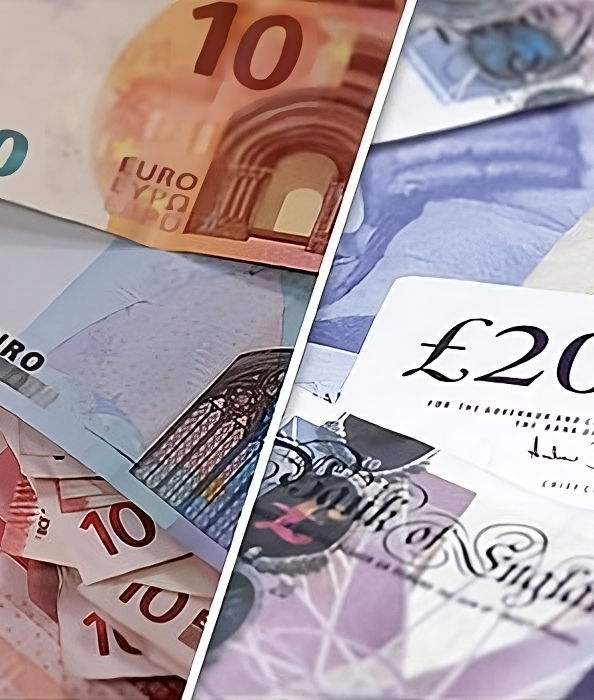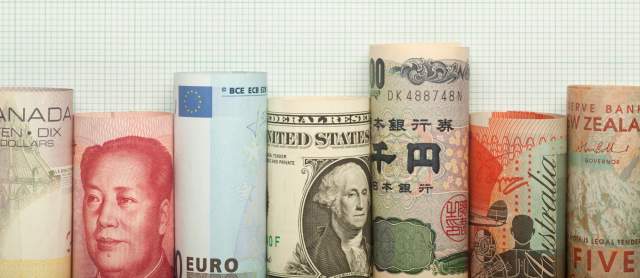Exchange Rates: 10 Tips For Online And Local Rates
In today's world economy, knowing the distinctions between online and local exchange rates for currency is crucial for those engaged in business, travel or investment ventures. Local rates refer to the exchange rates offered by currency exchange facilities in physical form or banks, as well as ATMs within your region or at your destination. Online rates refer to exchange rates provided by digital platforms and financial organizations. They can be wildly different, impacting the amount you will pay to exchange currency and the amount you will earn from your investment. Knowing the difference between local and online rates can assist you in making better choices, which will reduce your expenses. These are the 10 most detailed tips for navigating both local and online rates with ease.
1. What are the rate differences?
Local exchange rates can differ significantly from those offered online due to various factors such as overhead costs, market conditions and the demand. Local exchange services often have higher costs and have less favorable exchange rates due their operating costs. Online platforms generally offer better rates because they have lower overhead. Understanding these differences will help you to choose the best exchange rate for your needs.
2. Compare rates before you exchange currencies.
Compare online and local exchange rates prior to changing currency. Check rates in real-time using currency converters. Check the online exchange rate with the local exchange rate at booths and banks if you're planning to travel abroad. It is possible to reduce costs by comparing exchange rates.
3. Utilize Online Currency Exchange Platforms
– Online exchange platforms such as Wise (formerly TransferWise) and Revolut generally offer better attractive rates and lower costs in comparison to local banks as well as exchange kiosks. They typically offer real-time rate exchanges and full transparency on the fees. By using these services you can be sure that you're getting the most value in exchange rates.
4. Be Aware of Dynamic Currency Conversion (DCC)
If you are buying something from overseas, you may be given the option to pay with your currency by using Dynamic Conversion. Although this option is convenient, it can come with poor exchange rates and additional fees. Always make sure to pay locally in local currency in order to avoid the high expenses associated with DCC and also to benefit from better rates.
5. Comparing Costs and Convenience Consider Cost vs. Convenience
When choosing local or online exchange rates, you should compare the costs and ease of use. Local exchanges allow immediate access to money, which can be beneficial when traveling. But, online exchanges usually offer better rates but may require setting up a bank account, or waiting for money to be transferred. Consider your needs in light of your travel plans or business activities to figure out which option works best for you.
6. Keep track of the exchange rate trend
Track the trends in exchange rates for a better understanding of how to convert your currency. Online platforms offer historical data and analytical tools that can help you track exchange rates changes. Understanding market trends can help you better plan your currency exchanges so that you get the best rates.
7. Evaluate ATM fees and local withdrawal limits.
– Be aware that local withdrawals can result in charges. Different banks have different charges when you make international transactions. ATMs also often have their own withdrawal limitations. You can find ATMs with reduced rates or fees by comparing local ATMs prior your travels. This will help you receive the most value for your withdrawals.
8. Free Currency Exchange Service
Some online platforms offer the option of free currency exchange, primarily for those who have accounts. This is particularly useful for frequent travelers or businesses who regularly trade in foreign currency. Think about opening an account with such institutions to benefit from cheaper rates and fees, maximizing your cost savings when exchanging currencies.
9. Consult Financial Experts for Large Transactions
If you're dealing in large sums of money, or a complex exchange rate, then the advice of experts in finance is highly beneficial. Experts in currency provide invaluable advice regarding the best methods to make use of local and internet rates. This is especially important to companies involved in international trade and investors who want to minimize their exposure to currency.
10. Prepare your needs for currency in advance
Making plans ahead can help you save time and money whether you are going on business or vacation. Consider how much cash will be required for your trip and the most effective method to exchange it. If the local exchange rate isn't favorable, you should convert your cash online before you go. You'll be able to get higher rates and will not be able to lose money.
Use these guidelines to navigate the complexity of currency exchange, regardless of whether you're on the road, conducting business, or analyzing investments. Knowing the advantages and disadvantages of each choice will help you make better financial choices, aligning your financial strategy with your objectives. Have a look at the top dollar hints for more tips including usd to colombian peso, rs to usd, dollar to canadian dollar, pesos to dollars, usd to aud, us dollar to colombian peso, rmb to dollar, japanese yen to usd, currency exchange near me, pound to dollar and more.

The 10 Best Tips To Limit Your Currency Transactions And Exchange Rates
Limits on transactions play a crucial function in all financial transactions. They are based on the amount of money that is able to easily be transacted in a specific period. They are typically set by banks, payment platforms or banks. Understanding the limitations of transactions will help you optimize your financial strategy and avoid excessive charges or delays. Limitations on transactions could influence foreign purchases as well as cash withdrawals for those who travel. For businesses, they can affect payment processing and cash flow management. Investors must be aware of the limits on transactions for buying or selling assets. Here are the top 10 specific guidelines for managing the limitations of transactions in your financial deals.
1. Be aware of the limits on transactions at your bank.
Typically, every bank or financial institution has established limits for transactions like transfers, purchases, and withdrawals. You should familiarize yourselves with these limitations prior to traveling or performing major transactions. This information can aid you in planning your finances efficiently and avoid issues when trying to access funds or make purchases abroad. Go to the bank's website or contact customer support for detailed information on the limits on your account.
2. Plan to Withdraw Cash When Traveling
It is essential to plan your cash withdrawals when traveling to ensure you stay within the limits of transactions set by your bank. To estimate how much you'll require, be aware of the daily limit. You might want to consider making large withdrawals in one go If you are able, to ensure you don't run out of cash. Be aware of any ATM fees that could be applicable. If you're concerned that your withdrawals could exceed your limit, think about using a backup system for payment.
3. Utilize Multiple Payment Methods
– Relying solely on one payment method is dangerous when transaction limits come into play. To ensure that you have cash on hand, you should use a combination of credit card, cash and mobile payment apps. This strategy can help you manage your finances and avoid overspending on transactions on one account.
4. Be aware of your transactions on a regular basis.
– Regularly monitoring your transaction activity can help you stay aware of your spending and ensure that you aren't over the limits. Many banks offer mobile apps which allow you to monitor your transactions in real-time, providing insights on your balance as well as the fees you pay. Monitoring your account activity will assist you in better managing your the finances and reduce unexpected costs when you make purchases.
5. Be sure to inquire about limits for international transactions
If you plan to withdraw money from abroad and make purchases, you should ask your bank what their limitations apply to international transactions. Some banks have tighter limitations on foreign transactions. This may affect your ability to make purchases or transfer funds when you are abroad. Understanding these restrictions can aid you in planning your trip and avoid any disruptions on your trip.
6. You might want to consider setting up alerts for Transactions
A lot of financial institutions, including banks, offer alerts which will inform you when you're nearing your limit for transactions, or if a transaction is executed. Set up alerts to help you remain on top of your finances. This feature could be especially useful for travellers, who tend to overlook their expenditures while abroad.
7. Be aware of daily and Monthly Limits
Transaction limits are based on various time frames like a daily limit or a monthly limit. For instance the bank you work with may permit you to withdraw a particular amount every day, but set limits on monthly transactions. Understanding these timeframes can help you plan your transactions effectively, ensuring you have access to funds at any time, and not exceed your limits.
8. Ask Your Bank About Temporary Cap Then Increase
Check with your bank if anticipate having to perform significant transactions. A majority of banks will accommodate requests for larger limits as long as you provide a legitimate reason. Contact your bank in advance to discuss your options and the necessary documents to make the process easier.
Review the Payment Platform Limits
Be aware of the limits on transactions when you are using platforms such as PayPal, Venmo and others. The maximum amount for transactions may differ depending upon the particular platform. It can also depend on your verification status or your user history. Before you make any transactions, check the limits to prevent interruptions or delays when processing your payment.
10. Be informed about the limits on investment transactions
– For investors, transaction limitations could apply when buying or selling securities through brokerage accounts. This can affect your ability during volatile markets, to quickly complete trades. Make sure you are familiar with the policies of your brokerage regarding the limits on transactions. It is also possible to consider using limit orders or alternative strategies to manage your investments.
You can make the most of your travels to conduct business, as well as monitor investments by effectively managing your transaction limitations. You are able to make better financial decisions by knowing the policies of your bank, planning ahead for cash withdrawals using multiple choices for payment, and paying close attention to the history of your transactions. This knowledge can assist you in avoiding fees and disruptions, as well as improve your financial strategy. Take a look at the top rated read full article about PLN to EUR for website advice including usd mxn, dollar to rmb, php to dollar, usd to eur, cdn to usd, usd to chinese yuan, dollar to euro, dollor to inr, cdn to usd, convert gbp to usd and more.

